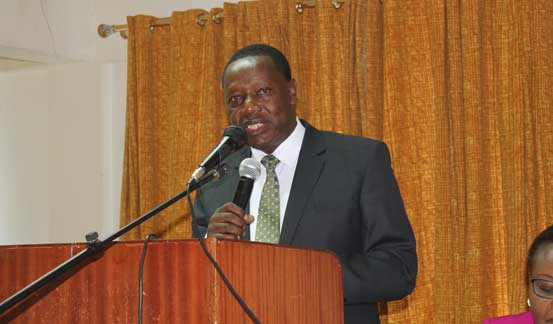
580 Mathematics and science education teachers from 20 Counties recently underwent a five day training course on expectations of the ongoing school curriculum reforms that lay emphasis on making learners acquire competencies to fit in the 21st century work environment.
The Coordinator of secondary programmers at the Centre for Mathematics, Science and Technology Education in Africa (CEMASTEA) that facilitated the courses Mr John Makanda said the program to be continued during the April holidays targeted 1117 teachers from 47 counties to in-turn serve as trainers for 8013 teaches during school holidays. The courses were held at centres in Embu, Nakuru, Nyandarua and Nairobi Counties.